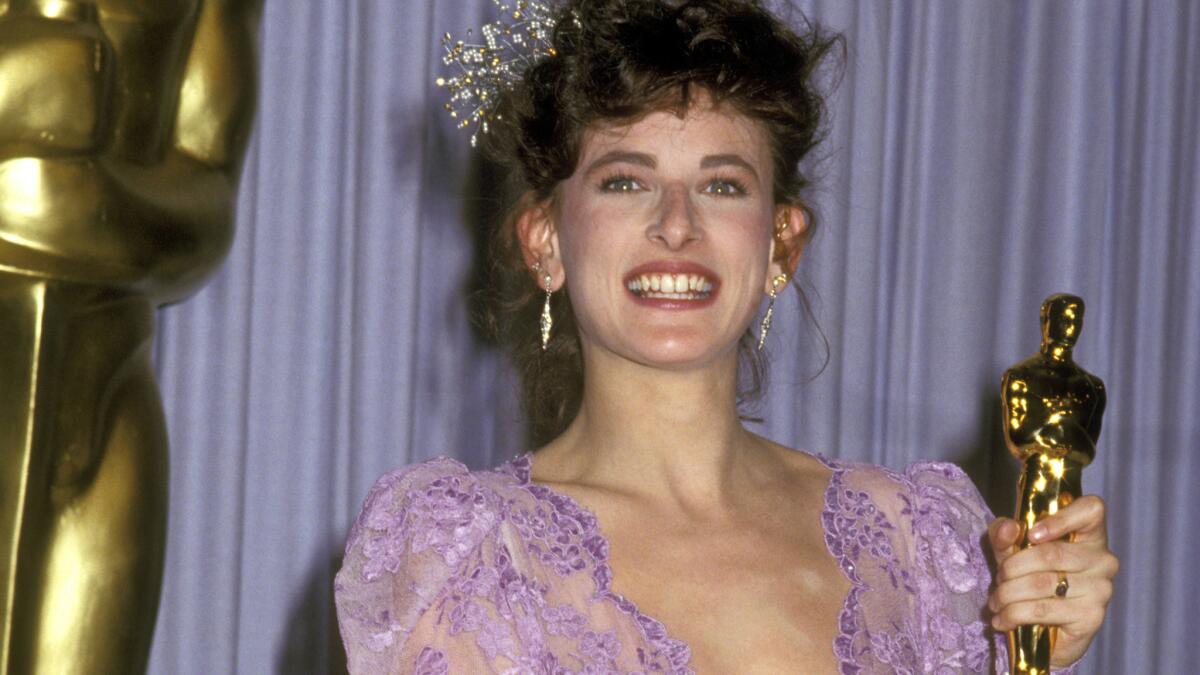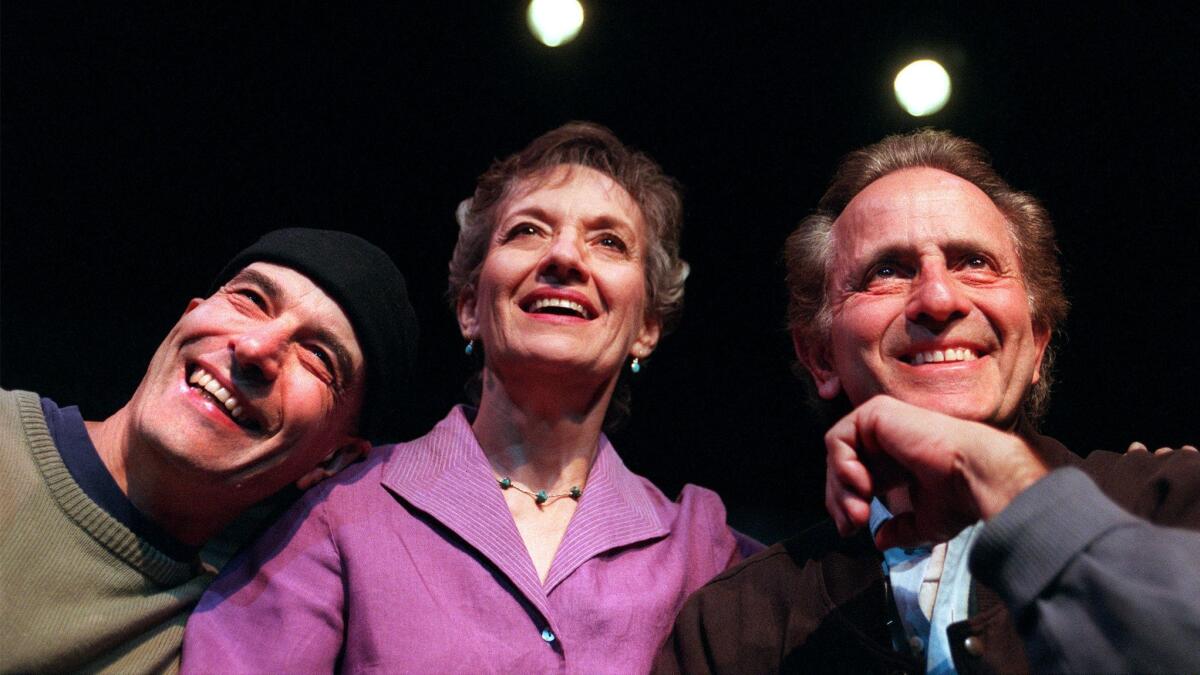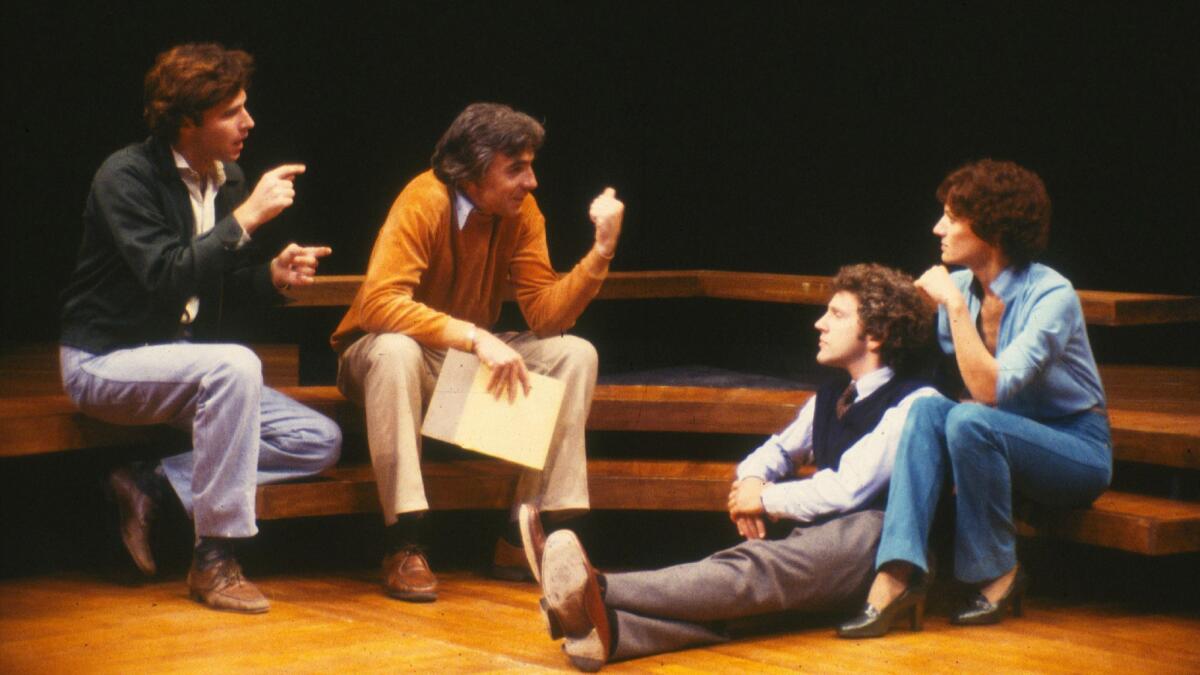Appreciation: Mark Medoff’s ‘Children of a Lesser God’ brought deaf culture to a bigger stage

- Share via
I wasn’t old enough to see the original 1979 run of “Children of a Lesser God” by Mark Medoff, who died Tuesday at 79. But the 1986 movie and leading actress Marlee Matlin’s Oscar win — the first for a deaf person — are ingrained in my impressionable childhood memory as a landmark event for our community.
My heart soared upon seeing Marlee win the Oscar because I finally understood then that it was possible to work in the arts as a deaf person. Even back then, it was inconceivable that our story was worth telling.

I first met Mark around the time of Deaf West Theatre’s “Road to a Revolution,” which was a play commissioned by DWT. I was a young theater fan, and I was honored to be in the presence of someone who had created a seminal work that would come to be an integral part of deaf theater history. The piece was a successor to “Children of a Lesser God” in that it grapples with the question of deaf people in American society.
“Children of a Lesser God” has aged considerably across four decades in light of the #MeToo movement and the strides that our community has made since then, but what remains is the character of Sarah and how Mark was able to metabolize the complicated history and persona of Phyllis Frelich — the Tony-winning actress for whom Mark wrote the play — into a role for the ages.

OPINION: Why deaf actors should play deaf roles »
To me, the character still embodies the journey that deaf people navigate in their lives as they break away from their past during their young adulthood. Along with Mark Taper Forum artistic director Gordon Davidson, Mark brought deaf culture and sign language to a world stage with wit and intellect. He fought for Phyllis to play the role, and their subsequent collaborations over the years are probably the most enduring run of a deaf-hearing artistic partnership ever.
I last saw Mark at the opening night of the 2018 Broadway revival. He was smiling broadly, and I mentioned in passing that Phyllis would have been very proud. He grabbed my hand and said that her presence was with us.
I recently corresponded with him about a piece of his we are thinking of staging, “A Christmas Carousel.” His impact on our small corner of the theater universe will be felt for a long time.
David Kurs is artistic director of Deaf West Theatre in Los Angeles.
Support our coverage of local artists and the local arts scene by becoming a digital subscriber.
See all of our latest arts news and reviews at latimes.com/arts.
More to Read
The biggest entertainment stories
Get our big stories about Hollywood, film, television, music, arts, culture and more right in your inbox as soon as they publish.
You may occasionally receive promotional content from the Los Angeles Times.










